This article was originally submitted as part of Jenna Puumalainen’s final project for the Diploma in Aromatic Science at the Tisserand Institute.
It is very common to feel anxiety in certain situations, like before a dental appointment or surgery. The Cambridge dictionary defines anxiety as “an uncomfortable feeling of nervousness or worry about something that is happening or might happen in the future”. If anxiety affects one’s normal ability to function, it could be considered as a mental illness. The Cambridge dictionary states that “panic attacks, irrational fears, and compulsive behavior are examples of anxiety disorders”.
Anxiety is not a nice feeling, so of course, we look for solutions to help with it. In this article I’m diving into this problem from the perspective of aromatherapy – could essential oils be the answer for tackling anxiety?
What are essential oils?
Essential oils are human-made plant-based substances. Plants make volatile compounds for their own survival and we humans have found out how to use these lovely aromatic compounds for our own well-being too in the form of distilled oils.
Plants use volatile compounds to lure pollinators and to keep themselves safe from herbivores and other threats in their environment. Different plant parts can have different kind of volatile compounds in them. When making essential oils it is important to know when to harvest the plant material and what part of the plant is to be used.
For example: For Vetiver (Chysopogon zizanioides) oil the (aromatic) roots of the plant are harvested instead of the (non-aromatic) visible grass part that is found above the ground. (Interestingly, with Citronella grass and Lemongrass, it is the above-ground part that is aromatic.) Rose (Rosa damascena) oil is distilled from the plant’s delicate flower petals and Lemon (Citrus limon) oil is expressed from the peel of the fruit. One reason that Rose oil is about 100 times more expensive that Lemon, is because the yield of essential oil from Rose petals is 100 times less than from Lemon peel.
Essential oils are most widely used in fragrances, foods, beverages, tobacco, and aromatherapy. Increasingly, they are also used in farm animal feed and food packaging
Every essential oil has its own unique chemical composition, which typically entails 1-3 major constituents, and anything up to 200 minor constituents. Due to their different chemical compositions, essential oils have a variety of effects and toxicities.
What is aromatherapy?
The word Aromatherapy was first used by French chemist René Gattefossé. Aroma refers to the scent of the plants, and therapy means using them to enhance wellbeing. In aromatherapy we use essential oils mostly through inhalation or applications to the skin. Essential oil constituents are small-molecule substances, and they are absorbed through the skin, the respiratory or digestive system into our bloodstream. Through these routes they can have various physiological effects. The scent may also provoke memories and feelings that affect us psychologically.
In aromatherapy, essential oils are used in many ways, for example in relaxing massage, personal inhalers to help with respiratory issues, balsams for pain management and, as our topic here explores, anxiety. But is there any scientific data to back this up? Let’s explore some research to find out!
Bergamot (Citrus bergamia) oil
Bergamot oil has a lovely aroma that is best known for its use in flavoring Earl Grey tea. It is also very popular in perfumes and room fragrancing.
Bergamot oil is phototoxic. This means that, due to certain chemicals called furanocoumarins, the oil can cause a burn on your skin, in the presence of sunlight or a sunbed. For this reason, the FCF (furanocoumarin-free) essential oil is more commonly used in cosmetics. The essential oil is expressed from the peel of the fruit. Its main chemical compounds are limonene, linalyl acetate and linalool. It isn’t a skin irritating oil, but the oxidized oil might be sensitizing (Tisserand & Young 2014, p2011-2012).
Bergamot oil has been well researched for its anxiolytic properties. In a study from 2012, 109 patients who were waiting for ambulatory surgeries were assigned to the essential oil group (53) or the control group (56). In the essential oil group the participants received Bergamot oil inhalation in their prepping room. The diffuser was hidden. The control group also had a diffuser in their prepping room, but it only diffused water. The participants of the essential oil group had lower anxiety before the surgeries based on their vital signs and interviews (Ni et al 2012).
Bergamot oil is very nice to use as an evening or good-night scent. Its aroma is quite mild.
Sweet Orange (Citrus sinensis) oil
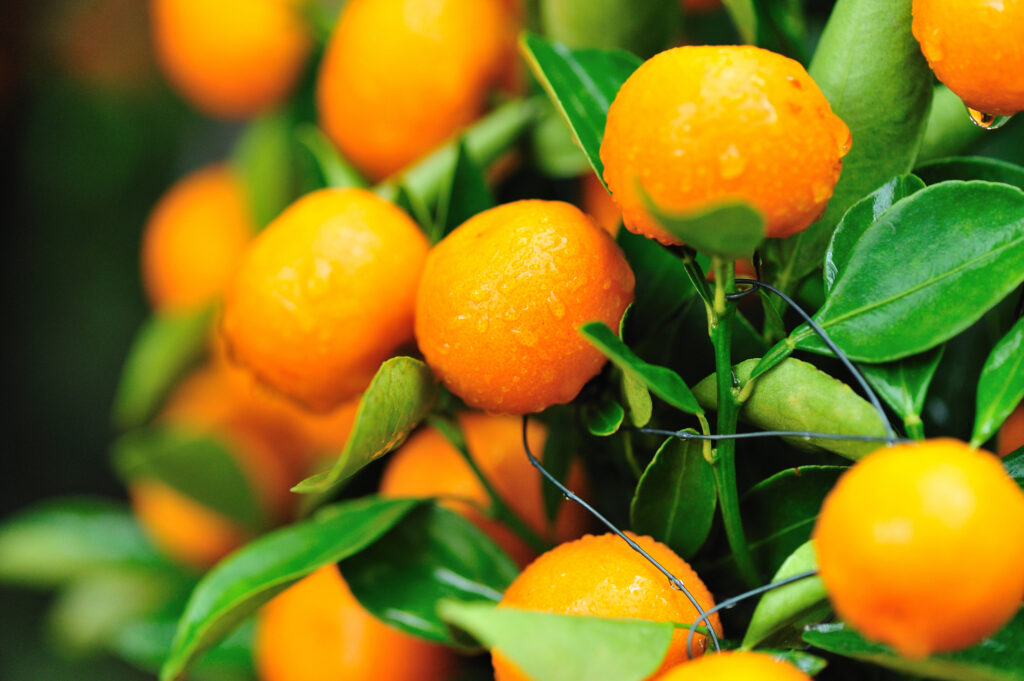 Sweet Orange oil is expressed from the peels of oranges (the kind we eat). It has a fresh, fruity aroma that most of us find enjoyable. It can be used in food flavoring, skincare products or as a room fragrance.
Sweet Orange oil is expressed from the peels of oranges (the kind we eat). It has a fresh, fruity aroma that most of us find enjoyable. It can be used in food flavoring, skincare products or as a room fragrance.
Sweet Orange oil consists of about 90% limonene. The oil is not phototoxic or skin irritant, but oxidized Orange oil might be slightly skin sensitizing (Tisserand & Young 2014, p372). (“Sensitizing” is about causing an allergic reaction.) Otherwise, sweet Orange oil is very safe to use.
Sweet Orange oil has been researched a lot for its anxiolytic properties. It has also shown antidepressant, sedative and relaxing properties (Orange Profile, 2023).
Two studies from Austria have shown that Sweet Orange oil diffusion could be a useful way to manage anxiety related to dental treatment. The first study had 72 participants. 35 of them had Sweet Orange oil diffused when waiting for their appointment, while the control group of 37 had no oil diffused in their waiting room. The study showed that Sweet Orange oil diffusion decreased anxiety, especially in female patients (Lehrner et al 2000).
The other study looked at the effect of sweet Orange oil on children in a cross-over study. There were two groups of kids aged 6 to 9. Participants of both groups had two dental appointments. The first group had Sweet Orange oil diffused in the dental surgery for their first appointment, and the second time only water was diffused. The second group did the same but the other way round. Pulse rate, blood pressure and salivary cortisol were all measured. The outcomes showed that the participants had much lower measurements in all of the anxiety markers when sweet Orange oil was being diffused (Jafardazeh et al 2013).
Sweet Orange oil is nice to use as a top note in a blend or fragrance, and it blends well with almost every other oil. I have found it to be a good trick to make not-so-lovely-smelling essential oils to be more pleasant, when combined with Sweet Orange!
Neroli (Citrus aurantium flowers) oil
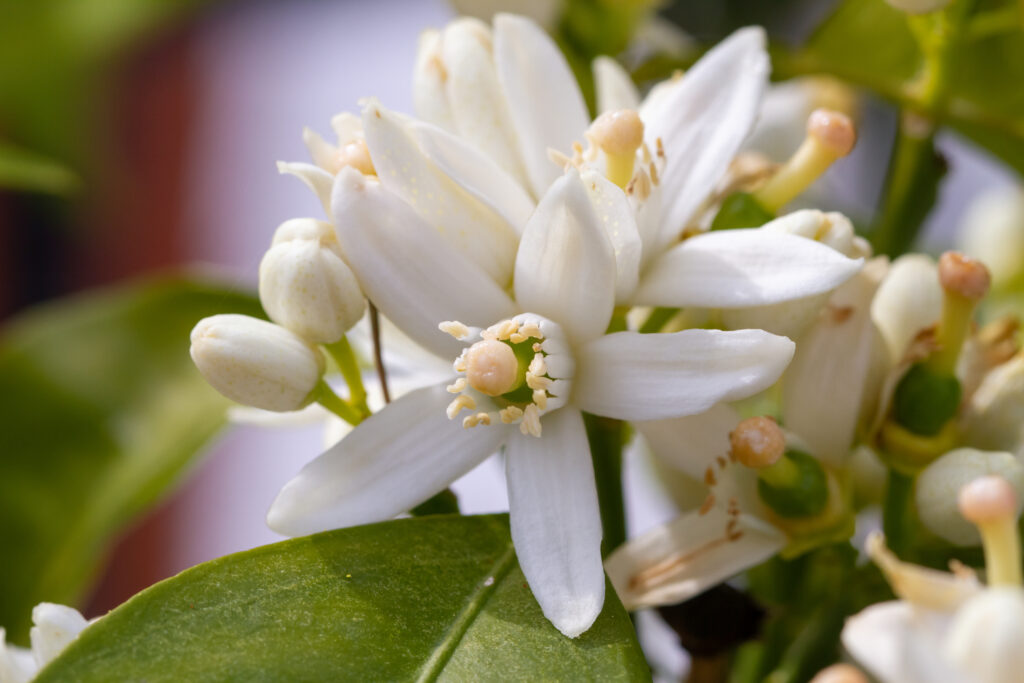 The Citrus aurantium tree gives us three essential oils: Neroli from its flowers, Petitgrain from its leaves, and Bitter Orange from its fruit peels. Neroli is the most expensive one since the flowers yield so little oil, making production much more costly. Neroli oil has a delicate, floral aroma that is not as sweet as for example the aroma of Rose or Ylang-ylang oil.
The Citrus aurantium tree gives us three essential oils: Neroli from its flowers, Petitgrain from its leaves, and Bitter Orange from its fruit peels. Neroli is the most expensive one since the flowers yield so little oil, making production much more costly. Neroli oil has a delicate, floral aroma that is not as sweet as for example the aroma of Rose or Ylang-ylang oil.
Neroli oil has no known safety issues, and its main chemical compounds are linalool and limonene (Tisserand & Young 2014, p363).
Neroli oil was anxiolytic in a study on patients with acute coronary syndrome (ACS). ACS affects the heart, and fear and anxiety are very common symptoms. The patients (70) inhaled neroli oil three times a day for two days after hospitalization. Their anxiety decreased significantly compared to the control group (70). No side effects were observed (Moslemi et al 2019).
Personally, I have found Neroli hydrosol (distillation water) to be the most comforting thing when experiencing anxiety. Hydrosols are distilled plant waters that are commonly used as facial sprays, fragrance, cosmetic ingredients and in food flavoring. They are much more gentle products than essential oils, so they can be used on the skin undiluted. Hydrosols do not keep well as they are water-based products, so storing them in the refrigerator is recommended.
Lavender (Lavandula angustifolia) oil
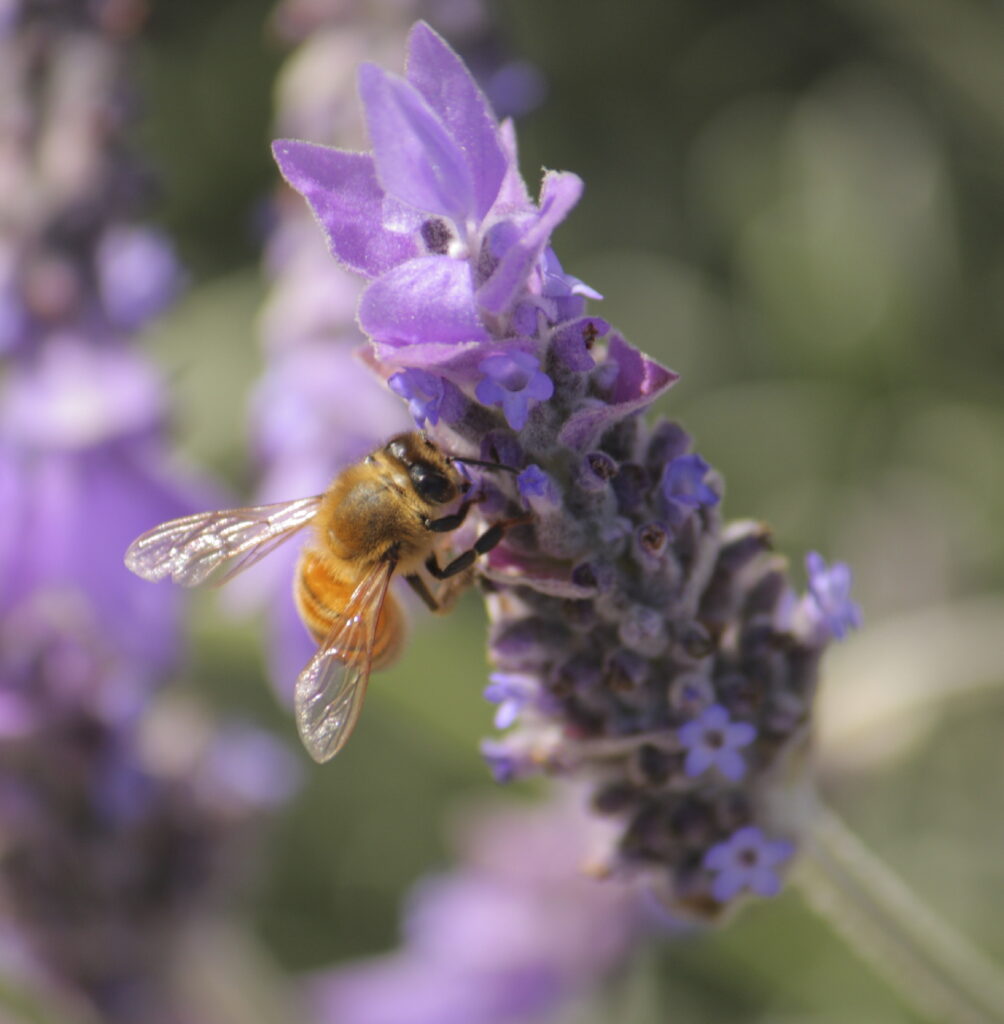 Lavender is the most popular essential oil in the world. It is steam distilled from the flowering top parts of the plant. Linalyl acetate and linalool are Lavender oil’s two main compounds. It is not skin-irritant or phototoxic, but there is a slight risk of sensitization. The risk of sensitization increases if the oil is oxidized (Lavender Profile, 2023). Essential oils should always be fresh and only used diluted when applied to the skin to avoid sensitization.
Lavender is the most popular essential oil in the world. It is steam distilled from the flowering top parts of the plant. Linalyl acetate and linalool are Lavender oil’s two main compounds. It is not skin-irritant or phototoxic, but there is a slight risk of sensitization. The risk of sensitization increases if the oil is oxidized (Lavender Profile, 2023). Essential oils should always be fresh and only used diluted when applied to the skin to avoid sensitization.
In a study from 2019, the anxiolytic effect of lavender oil was studied in patients waiting for breast surgery. Eighty participants were assigned to two groups, 40 in each. One group inhaled lavender oil before surgery and the control group simply didn’t. The results showed that the anxiety levels in the lavender group decreased significantly compared to the control group (Beyliklioğlu et al 2019).
There are many other studies on the anxiolytic action of Lavender oil. And since anxiety often disturbs sleep, it makes complete sense to use Lavender to lure the Sandman into the bedroom too!
Geranium (Pelargonium graveolens) oil
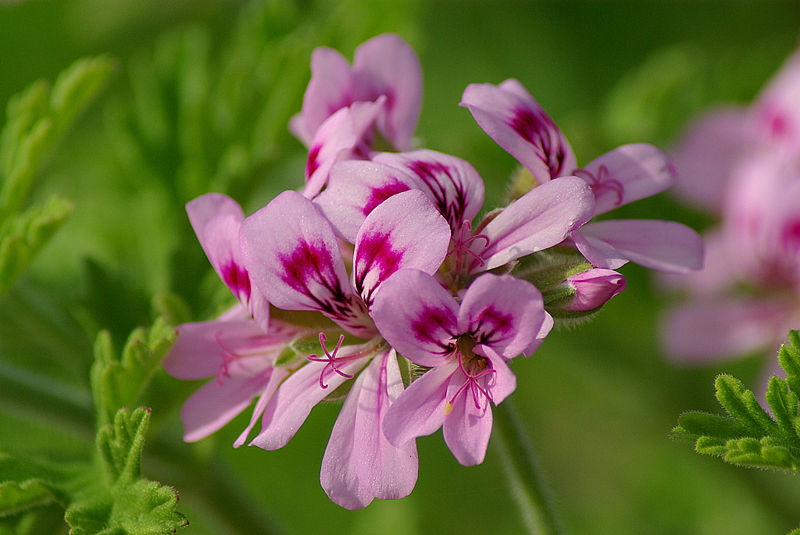 Geranium oil is steam distilled from the leaves and flowers of the plant, and citronellol and geraniol are its major constituents. The risk of this essential oil to cause any irritation or sensitization is very slight (Geranium Profile 2023).
Geranium oil is steam distilled from the leaves and flowers of the plant, and citronellol and geraniol are its major constituents. The risk of this essential oil to cause any irritation or sensitization is very slight (Geranium Profile 2023).
The difference between geranium oil and placebo was measured in a study from 2017. Eighty patients were in a hospital due to acute myocardial infarction (heart attack). Half were assigned to the aromatherapy group and half to the control group. The aromatherapy group inhaled Geranium oil for 20 minutes, twice daily, for two consecutive days, and the control group did the same with sunflower oil. Anxiety decreased very much more in the Geranium group than in the control group (Shirzadegan et al 2017).
Geranium oil has a strong, green-floral scent. It becomes more lovely when diluted and combined with strong base notes or lighter top notes.
Essential oil mixtures
Some researchers use single oils, and some prefer blends. This study looked at the effects of oil blends on the anxiety, vital signs and sleep quality of percutaneous coronary intervention (PCI) patients in intensive care units. There were 28 in both the aromatherapy group and the control group.
The aromatherapy group inhaled a mixture of Lavender oil, Roman Chamomile (Chamaemelum nobile) oil and Neroli oil, in a ratio of 12:4:1. Participants inhaled the blend from a scent stone with ten deep breaths both before and after their surgery, while the control group received standard nursing care. Patients that received aromatherapy had better quality of sleep and less anxiety than did the control group. Interestingly, the essential oil inhalation did not affect their blood pressure (Cho et al 2013).
The Table below shows this, and several other clinical trials where essential oils were used successfully to relieve anxiety related to a medical procedure.
How to use essential oils safely to relieve anxiety
As we have seen, many essential oils have been shown to have anxiolytic effects. The research is mostly about anxiety in certain situations, not so much about long term anxiety as a disease.
When diffusing, use moderate amounts of essential oil. Depending on the size of the room and the diffuser, 4-7 drops is usually enough. If there are children, pets or sensitive persons in the room, always be extra cautious. Let the diffuser run only in periods of 15-60 minutes and then have a pause of about the same time.
A personal inhaler (the tube kind that you put right up to your nose) is a convenient way to have the effects of essential oils with you anywhere you go. Just add 10-15 drops of oil to a cotton wick and insert it into the inhaler. This could be a very good method for places where you can’t use diffusers, such as dentist appointments, airplanes, offices, schools and malls. Anxiety is very common in crowded public places, and this way you can use aromatherapy without anyone noticing or being disturbed.
When using essential oils on your skin, be sure to dilute them properly. Some essential oils are phototoxic, some are skin irritants, and some are sensitizing, so get to know every oil you are using individually.
Store your essential oils in a cool place away from sunlight. Keep them where young children cannot reach them. Do not use oxidized oils.
It is lovely to help ourselves with aromatherapy but please be sure to go to the doctor if your anxiety is severe. Also be sure to check with your doctor if you have any concerns about essential oils interacting with medications.
References
Bergamot Profile. Materia Aromatica Database. 2023. https://tisserandinstitute.org/profile-database/
Beyliklioğlu A, Arslan S. 2019. Effect of lavender oil on the anxiety of patients before breast surgery. https://www.ncbi.nlm.nih.gov/pubmed/30660371
Braden, R., Reichow, S., & Halm, M. (2009). The use of the essential oil lavandin to reduce preoperative anxiety in surgical patients. Journal of Perianesthesia Nursing, 24(6), 348–355. https://doi.org/10.1016/j.jopan.2009.10.002
Cho MY, Min ES, Hur MH, Lee MS. 2013. Effects of aromatherapy on the anxiety, vital signs, and sleep quality of percutaneous coronary intervention patients in intensive care units. https://www.ncbi.nlm.nih.gov/pmc/articles/PMC3588400/
Daneshpajooh, L., Najafi Ghezeljeh, T., & Haghani, H. (2019). Comparison of the effects of inhalation aromatherapy using Damask Rose aroma and the Benson relaxation technique in burn patients: A randomized clinical trial. Burns, 45(5), 1205–1214. https://doi.org/10.1016/j.burns.2019.03.001
Geranium Profile. Materia Aromatica Database. 2023. https://tisserandinstitute.org/profile-database/
Jafarzadeh M, Arman S, Pour FF. 2013. Effect of aromatherapy with orange essential oil on salivary cortisol and pulse rate in children during dental treatment: A randomized controlled clinical trial. https://www.ncbi.nlm.nih.gov/pmc/articles/PMC3732892/
Lavender Profile. Materia Aromatica Database 2023. https://tisserandinstitute.org/profile-database/
Lehrner J, Eckersberger C, Walla P, Pötsch G, Deecke L. 2000. Ambient odor of orange in a dental office reduces anxiety and improves mood in female patients. https://www.ncbi.nlm.nih.gov/pubmed/11134689
Moslemi F, Alijaniha F, Naseri M, Kazemnejad A, Charkhkar M, Reza Heidari M. 2019. Citrus aurantium aroma for anxiety in patients with acute coronary syndrome: a double-blind placebo-controlled trial. https://www.ncbi.nlm.nih.gov/pubmed/31211612
Ni C-H., Hou W-H., Kao C.C., Chang M-L., Yu L-F., Wu C.C., Chen C. 2012. The anxiolytic effect of aromatherapy on patients awaiting ambulatory surgery: a randomized controlled trial. https://www.ncbi.nlm.nih.gov/pmc/articles/PMC3877597/
Orange Profile. Materia Aromatica Database. 2023. https://tisserandinstitute.org/profile-database/
Pasyar, N., Rambod, M., & Araghi, F. (2020). The effect of bergamot orange essence on anxiety, salivary cortisol, and alpha amylase in patients prior to laparoscopic cholecystectomy: A controlled trial study. Complementary Therapies in Clinical Practice, 39(March), 101153. https://doi.org/10.1016/j.ctcp.2020.101153
Pimenta, F. C. F., Alves, M. F., Pimenta, M. B. F., Melo, S. A. L., Almeida, A. A. F. de, Leite, J. R., … Almeida, R. N. de. (2016). Anxiolytic effect of Citrus aurantium L. on patients with chronic myeloid leukemia. Phytotherapy Research, 30(4), 613–617. https://doi.org/10.1002/ptr.5566
Shirzadegan, R., Gholami, M., Hasanvand, S., et al. 2017. Effects of geranium aroma on anxiety among patients with acute myocardial infarction: A triple-blind randomized clinical trial. https://pubmed.ncbi.nlm.nih.gov/29122262/
Tisserand R, Young R. 2014. Essential oil safety 2nd edition. Churchill Livingstone, Edinburgh.
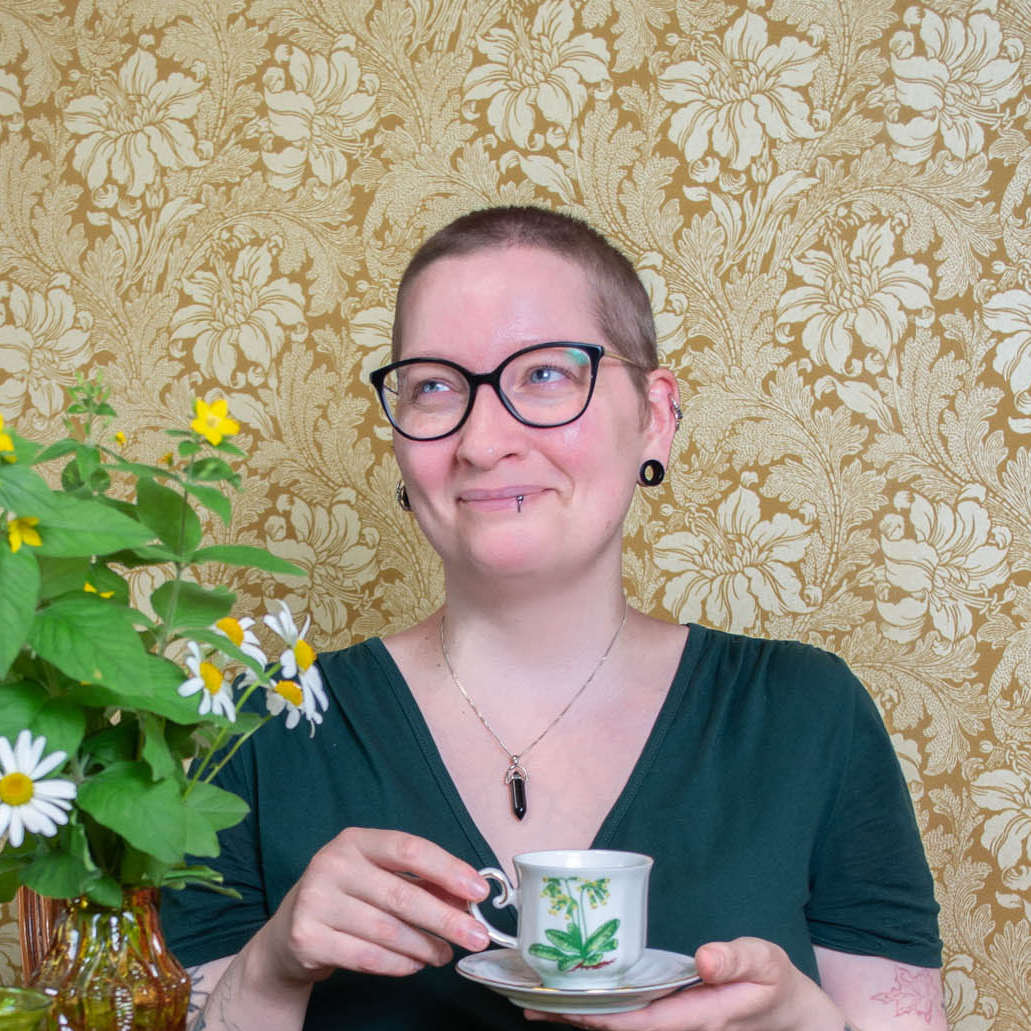
Jenna Puumalainen
Author
Jenna is a Finnish plant enthusiast and aromatherapy educator. She has worked as an entrepreneur since 2019 and her mission is to help like-minded people adopt more modern and sustainable knowledge. Jenna spent several years working as a nurse, and this highlighted the importance of safety in all her work. She also has a vocational qualification in natural and environmental protection. The courses offered by Tisserand Institute have been the backbone of her aromatherapy studies. Supporting psychological wellbeing using natural remedies is a subject especially dear to her heart. You can follow Jenna on her website HERE.


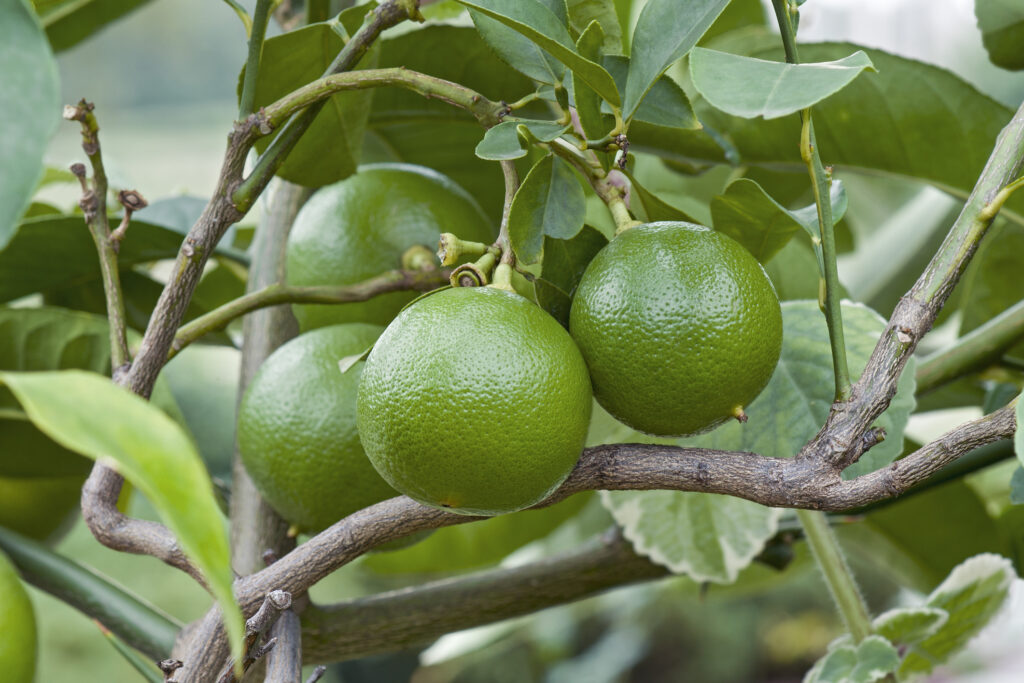
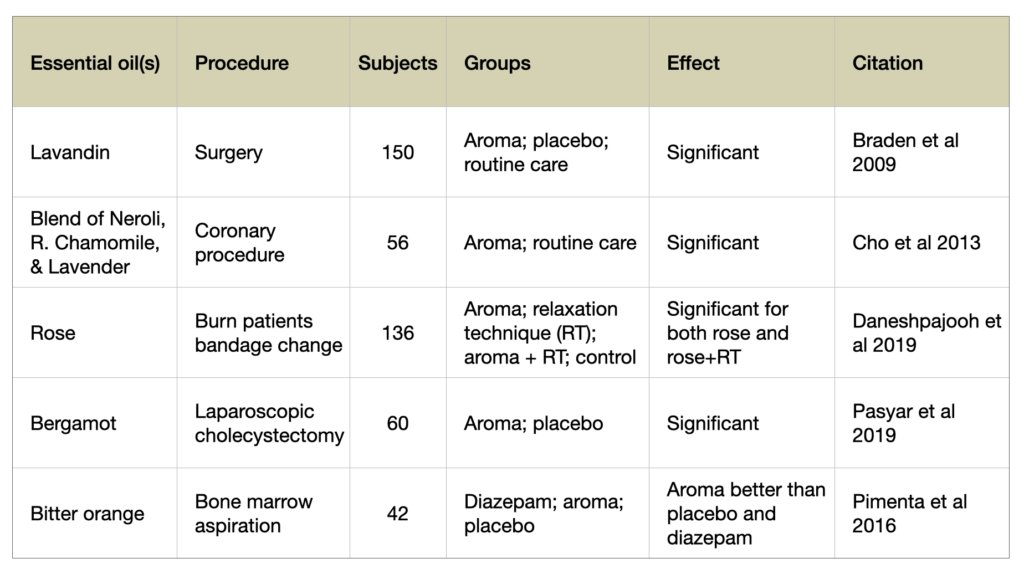
0 Comments